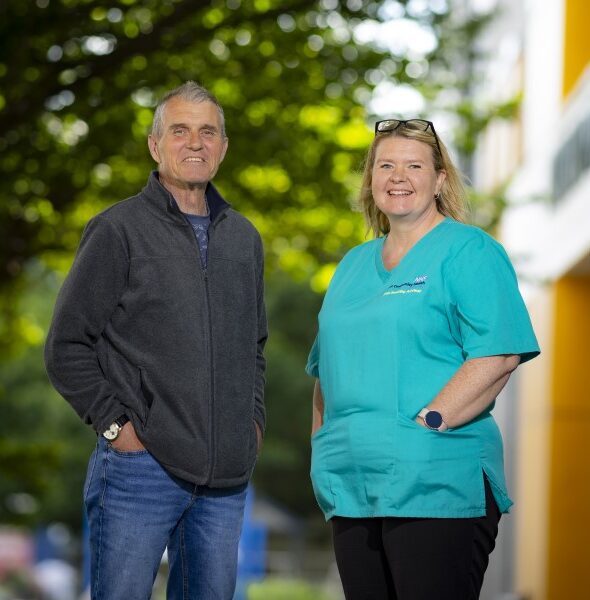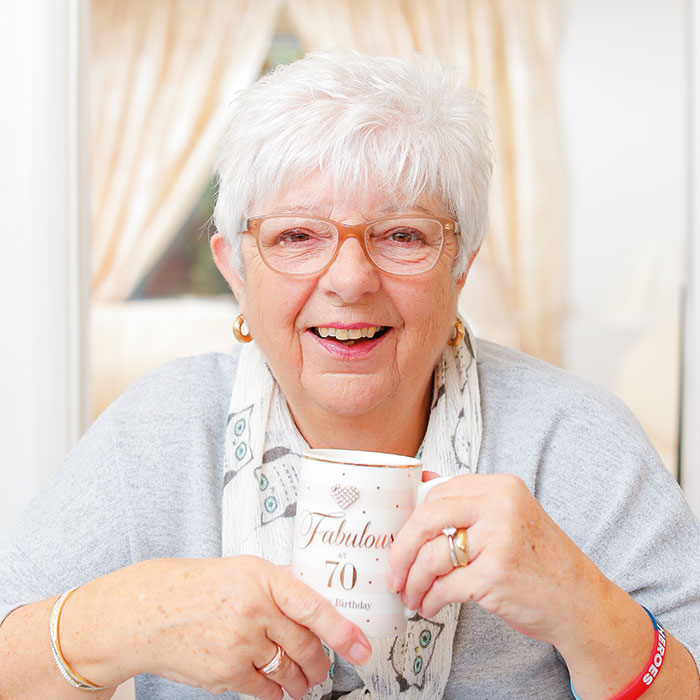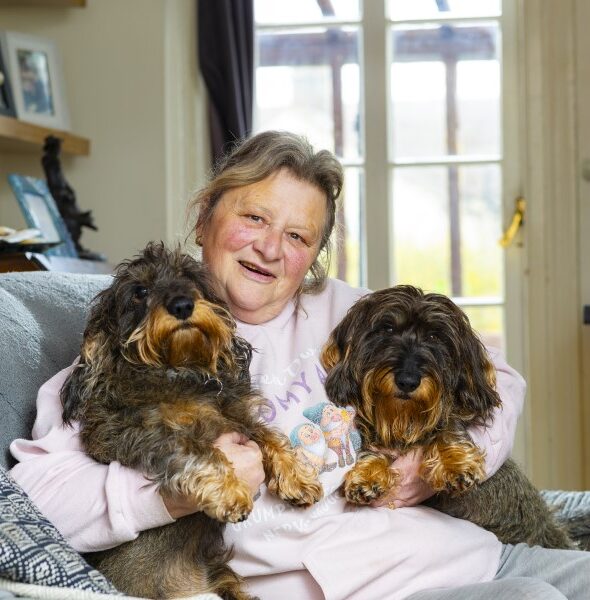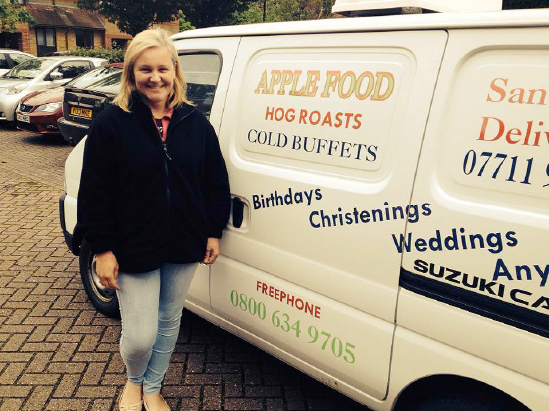What we do
We know it’s tough to quit smoking, but you don’t have to go it alone. No lectures, just professional support and help when you need it most. We can help you to quit smoking and be smokefree for life.
 Our friendly and professional team offers:
Our friendly and professional team offers:
- weekly support from a specialist adviser
- access to prescription products to help you quit including a free e-cigarette starter kit (subject to availability and age restrictions apply).
- behavioural support to strengthen your motivation.
There are lots of different ways to get support
- Quit Clubs (everyone quits at the same time in the group)
- Rolling groups (people join at different times)
- Drop-in sessions
- One-to-one support
- A specialist pregnancy service
- Hospital patient support
- Your own ‘Personal Quit Plan’ packed full of tips and support.
For free advice and support, or to register your interest in your own personal quit plan, text QUIT to 60163, phone 0300 123 1220 or fill in our fast referral form.
How long does it take to get on to a Quit Club?
Depending on your location, it could be anything from one day to a few weeks.
Will I have to quit straight away?
No. Depending on your choice of support it will generally be week three or if it is a one-to-one, you will decide when your quit date will be. If you want to take longer, or you want to cut down first, try our ‘Cut Down 2 Quit’ programme and see how it goes.
Do I need to prepare anything before my quit attempt?
Once you have registered we will send you useful tips and information via post, text or email. If you do not wish to register then please read all of the information available on this site.
Will I receive anything to help with my quit attempt?
Nicotine Replacement Therapy (NRT) tailored to your needs is available for a one-off prescription charge (exemptions apply). Prescription medication is available from your GP (prescription charges may apply). All of the support and advice that you will receive will be absolutely free.
How long is the course?
You will need to come once a week for seven weeks.
What’s the success rate?
Our success rate is around 55 to 65 per cent, about ten times higher than ‘going it alone’!
Can I go with a friend?
Quitting together with friends or partners gives you that extra support and is a very good idea.
Is it like an AA meeting?
No. The courses are informal, friendly and supportive. Most people even find them fun!
If I had a slip up and had a cigarette, would that mean I wouldn’t be able to attend the course anymore?
Of course not. Many people have a slip before they successfully quit. It is best if you don’t even have a puff to give yourself the best chance of success, but if it does happen we will help you to start afresh.
What happens if I don’t quit after the course?
We would advise you to take a break and come back and try again when you feel ready.
What happens after the course? Do I get anymore support?
We can support you until week 12 of your quit attempt with NRT and or prescription medication if you need it. There are also drop-ins meetings available if you still feel you need some extra support or you can always give us a call.
Will Nicotine Replacement Therapy affect any medication I am already on?
NRT shouldn’t affect any other medications. However if you have any concerns contact your GP or Pharmacist.
What happens if I miss a session? Will I have to start again?
No you won’t need to start again, just come along to the next session. If you need any advice or another prescription just call the 0800 number and someone in the office will be able to help.
How much will it cost for me to join?
Our service is completely free, the courses and all the advice and support are free. The only cost will be a one-off prescription charge for the products that you choose. If you don’t usually pay prescription charges, it’s completely free!
Source – Electronic Cigarettes: A briefing for stop smoking services (NCSCT) January 2016
Is nicotine dangerous?
Nicotine does not cause smoking related disease, such as cancers and heart disease. These are caused by other chemicals found in tobacco smoke. Nicotine is addictive however and it is why people continue to smoke despite knowing about the harmful effects of tobacco. Nicotine in e-cigarettes poses little danger to adult users. In order to prevent accidental poisoning of children, e-cigarettes and liquids should be stored away safely (just as you would with household cleaning products and medicines, including NRT products).
How often should I use an e-cigarette to help me to stop smoking?
As often as you need to help manage nicotine withdrawal and urges to smoke. You will soon discover the best way for you of using your e-cigarette, and find that you’re using it when you feel a need to top-up. It’s not like a cigarette, which you would smoke from start to finish, with an e-cigarette you can sip on it once or twice, and then put it away. If you find you’ve got it in your mouth all the time, you might need to use a stronger e-liquid.
Will e-cigarettes be cheaper for me than smoking?
Yes. Once you have chosen your starter kit then you only need to replace the atomiser (heating coil or ‘head’) for a couple of pounds and purchase your e-liquid which can start at £3.00 for 10 ml. You will notice savings very quickly compared with buying cigarettes.
Is it OK to smoke and vape at the same time?
Yes. There is no evidence that smoking cigarettes and vaping at the same time increases health risks. However, the greatest health benefits are seen when people stop smoking tobacco completely, so quitting smoking should be the goal. Stop smoking services can provide advice and support to help. Some people manage to switch completely to vaping quickly, whilst others take a little time. You may have to try a number of different e-cigarettes and e-liquids before you find the one that enables you to stop smoking completely, but this is quite normal.
Can I use e-cigarettes in places where I cannot smoke?
There is currently no legislation preventing or restricting the use of e-cigarettes. Some places do not allow vaping whilst others do; if there is no signage then you should ask.
What nicotine strength e-liquid should I go for?
How much nicotine you require will depend upon how much nicotine you are getting from your cigarettes. And of course how much nicotine you get from your e-liquid will depend upon the type of e-cigarette that you use and how you use it. As a rough guide, most 20-a-day smokers find that 18mg/ml (1.8%) is sufficient, so you could start with this and see how you get on.
Are e-cigarettes dangerous, do they blow up or catch fire?
As with any rechargeable device, it is important to charge with the correct charger and not to leave an e-cigarette unattended whilst charging. Ensure that you buy from reputable suppliers and avoid generic charging equipment. There have been reported cases of e-cigarettescausing fires at a rate of around two per week in the UK, however this is far less than the number of fires caused by cigarettes.
Will I end up using more nicotine with my e-cigarette and overdosing?
Much the same as with NRT, if you have more nicotine than you are used to then you might feel a little nauseous or lightheaded, both of which pass quickly. If this happens you can just reduce the level of nicotine in the e-liquid that you buy, or use the e-cigarette less. You are in no danger of poisoning yourself and there have been no cases of overdose from inhaling e-liquid.
Are e-cigarettes safer for me than smoking?
Yes. Experts estimate that e-cigarettes are, based on what we know so far, around 95% safer than cigarettes. Smoking is associated with a number of very serious health risks to both the smoker and to others around them. Therefore smokers who switch from smoking tobacco to e-cigarettes substantially reduce a major risk to their health. Some studies have detected chemicals in e-cigarette vapour that are known to cause health problems. However, these chemicals have been found at very low levels that are unlikely to represent a serious risk to health. When e-cigarettes are used within normal operating levels (e.g. not overheated),there are far fewer harmful chemicals present in their vapour than in tobacco smoke. If the e-liquid is being overheated it tends to produce an acrid, unpleasant taste – you will know if this happens!
I get a bit of a cough when I use my e-cigarette
This isn’t unusual and you may benefit from switching from an e-liquid with a high proportion of propylene glycol to one with more vegetable glycol, which can be more soothing.
Is second hand vapour from e-cigarettes dangerous?
Some studies have found traces of toxicants in second hand vapour, but at such low levels that they do not pose a health risk to bystanders. There is no evidence that second-hand vapour is dangerous to others; however, it helps to be respectful when using e-cigarettes around others, especially non-smokers.
We can also give free advice to businesses and and deliver quit clubs within your organisation if you want to help your colleagues to go smokefree.
Kent Community Health NHS Foundation Trust (KCHFT) became smoke free in 2006 following guidance in the white paper, Choosing Health, which gave a clear commitment to a smoke-free NHS. As a result, all NHS premises became smoke-free, including outside spaces and vehicles parked on NHS used or owned sites.
Smoking has been illegal in enclosed and substantially enclosed work and public places in the United Kingdom since July 2007. Smoke-free legislation forms part of the Health Act 2006.
Smoking remains the UK’s greatest cause of health inequalities, preventable illness and premature death.
What are the risks of smoking?
Tobacco smoke contains over 7,000 chemicals, many of those are known to cause cancer. Smokers are addicted to Nicotine, but are harmed by many of the other chemicals.
Smoking and exposure to second hand smoke increases the risk of:
- Cancer
- Strokes
- Heart disease
- Lung diseases
- Reduced fertility
- Complications in child birth
- Developing diabetes.
Everyone!
When a person smokes a cigarette, the smoke is inhaled through the nose and mouth and moves down through the throat into the lungs. When smoke enters the lungs is starts to damage the lining of the lungs. This damage leads to lack of oxygen and the increased build-up of the chemicals causes breathlessness, wheezing and dizziness. Carbon Monoxide from cigarette smoke enters the blood stream and stops the blood from carrying oxygen around the body.
Secondhand smoke (or passive smoking) is dangerous to anyone who breathes it in and can bring many of the same health risks as someone who smokes. It can stay in the air for several hours after somebody smokes. Even breathing secondhand smoke for a short amount of time can hurt your body (e.g. developing cancer, heart disease or respiratory conditions). Secondhand smoke is especially dangerous for children, babies, women who are pregnant, and those who suffer with respiratory conditions.
People with a mental illness who smoke are more likely to be heavier smokers and more tobacco dependent than smokers in the general population. Smokers with a mental illness tend to experience more severe mental health symptoms, requiring higher doses of some medication.
We understand that stopping smoking may be challenging at first. Smoking cessation has proved to be associated with improvements in mental health compared with continuing to smoke, in particular improving mood, self-confidence, and reducing levels of anxiety.
OneYou – Kent Stop Smoking Service.
OneYou Smoke Free is provided by KCHFT. They can help you quit smoking with professional support and help when you need it most. This is a free service delivered by a friendly and professional team which offers group support and one-to-one sessions at a time and place to suit most people. They also offer specialist support to pregnant women.
Support is provided via telephone calls, MS Teams or face to face.
OneYou Smoke Free Service is e-cigarette friendly and the service is able to provide Nicotine Replacement Therapy free of charge from a participating local pharmacy.
A referral to the service can be made using the online form available on our public page or by calling 0300 123 1220. If you prefer you can download the OneYou Kent referral form and return to oneyou.kent@nhs.net. You can also text the word ‘Quit’ to 60163, an advisor will get in touch with you to discuss support available to you.
Website: www.kentcht.nhs.uk/one-you-kent/one-you-smokefree/
You can also follow OneYou Kent on Facebook, Instagram and Twitter.
Giving up smoking is a personal choice, but it is the most important thing you can do for your health and those around you. With the right support from a smoke free adviser you are four times more likely to quit and stay quit. We will respect your decision and support you to give up if you choose to.
Watch this
Your stories
Contact us
One YOU Kent
0300 123 1220
kentchft.oneyoukent@nhs.net
Monday to Friday, 9am to 5pm
Or fill in our One You Kent referral form.
Follow One You Kent on Facebook, Instagram and Twitter for playlists, videos and information to help on your journey to a healthier YOU.
Friends and Family test (FFT) question - percentage of positive responses
(Survey feedback from October to December 2020)






